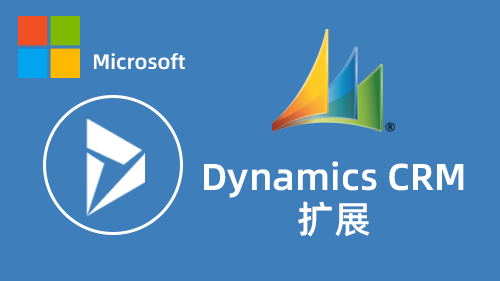课程大纲
课程简介
Overview:
The student will learn to develop extensions for Microsoft Dynamics CRM 2011, extension methods documented in the Microsoft Dynamics CRM SDK, Common Platform Operations and integration between Windows Azure and Microsoft Dynamics CRM 2011.
Who Should Attend:
This course is a CRM development course intended primarily for partners and customers who have a technical background and familiarity with Microsoft Dynamics CRM 4.0 or Microsoft Dynamics CRM 2011. The audience must also be experienced in basic form customizations and workflows.
At Course Completion:
After completing this course, students will be able to:
Describe how Microsoft Dynamics CRM 2011 is extended and the core extensibility features.
Use common methods to access system and custom entities, including the Security Model, business logic, xRM Framework and exceptions.
Execute queries in the Microsoft Dynamics CRM database, including QueryAttribute, QueryByExpression, LINQ, FetchXM, filtered views and OData.
Explain how the Organization Service web service interacts with Microsoft Dynamics CRM metadata.
Develop custom workflow activities for use within Microsoft Dynamics CRM that run code when configured workflow or dialog rules are created.
Debug custom workflow activity code and use declarative workflows for On-premise deployments.
Use Plug-ins to extend the functionality of events for any entity in Microsoft Dynamics CRM 2011.
Understand the integration between Windows Azure with Microsoft Dynamics CRM 2011.
Use the built-in features of the Microsoft Dynamics CRM application and understand how the Dynamics CRM application behaves when forms are loaded or saved, field data changed, tabs change state, and when IFRAMES are uploaded.
Add custom buttons, menu items and modifications to the navigation areas, including interaction with the Site Map and the Ribbon.
Add custom web content (for example HTML, Images, Silverlight, JavaScript) to CRM forms.
Use web resources to enable the storage of shared blocks of code or resources for reuse across the Microsoft Dynamics CRM web application.
Outline:
Lesson 1: Extensibility Overview
Objectives
Introduction
xRM Application Framework
Extensibility Platform and Features
Security Model
Business Model
Business Logic
Business Entity Components
Data Access Components and Platform
Helpful Skills
Resources
Summary
Test Your Knowledge
Quick Interaction: Lessons Learned
Solutions
Lesson 2: Common Platform Operations
Objectives
Introduction
WCF Web Services
Discovery Service
Early versus Late-Binding
Early-Bound Entity Class
Late-Bound Entity Class
Organization Service
Authentication and Authorization
Entity Information
Working with Data Types
Using the Create Method
Using the Retrieve Method
Using the Update Method
Using the Delete Method
Using the RetrieveMultipleMethod
Handling WCF Faults
Summary
Test Your Knowledge
Solutions
Lab 2.1: Creating Leads
Lab 2.1: Account Management Application
Lesson 3: Querying Data and Executing Operations
Objectives
Introduction
Querying in Microsoft Dynamics CRM 2011
Query Expression
QueryByAttitude
LINQ Queries
FetchXML
Filtered Views
OData
Execute Method
Requests and Responses
Using the MetadataService Web Service
Summary
Test Your Knowledge
Quick Interaction: Lessons Learned
Solutions
Lab 3.1: Using QueryExpression
Lab 3.2: Using LINQ to Perform, Create, Read, Update and Delete Operations
Lab 3.3: Using Fetch XML
Lab 3.4: Using FetchXML
Lab 3.5: Using Request and Response
Lesson 4: Implementing Business Processes
Objectives
Introduction
Overview of Workflow
Overview of Dialogues
Setting up Custom Workflow Activity Assemblies
Demonstration: Configuring a Custom Workflow Activity
Creating Custom Workflow Activities
Debugging Custom Workflow Activities
Creating and Modifying Windows Workflow Foundation (XAML Workflows)
Demonstration: Modifying an Existing Workflow in Visual Studio 2010
Summary
Test Your Knowledge
Quick Interaction: Lessons Learned
Solutions
Lab 4.1: Creating a Custom Workflow Activity
Lesson 5: Plug-ins
Goal Description
Challenge Yourself!
Need a Little Help?
Step by Step
Step by Step
Lesson 6: Application Event Programming
Lessons
Objectives
Introduction
Using Jscript Libraries
Form and Field Events
Xrm.Page
Xrm.Page.context (Client-Side Context)
Xrm.Pge.data entity
Xrm.Page.ui
Form Types
Form Event Handler Execution Context
Setting Event Dependencies
Pass Parameters
Using Best Practices in Writing Client-Side Code
Debugging Client-Side Code
Summary
Test Your Knowledge
Quick Interaction: Lessons Learned
Solutions
Lab 6.1: Telephone Number Formatting
Lab 6.2: Control Tab Visibility
Lesson 7: Client Extensions
Objectives
Introduction
Customizing the Site Map
Customizing the Ribbon
URL Addressable Forms and Views
Summary
Test Your Knowledge
Quick Interaction: Lessons Learned
Solutions
Lab 7.1: Modifying the Site Map
Lab 7.2: Customize the Ribbon
Lesson 8: Web Resources
Objectives
Introduction
Overview of Web Resources
Web Resource Management
Referencing Web Resources
Silverlight Web Resource
REST Endpoint, OData and JSON
Using JQuery
Test Your Knowledge
Quick Interaction: Lessons Learned
Solutions
Lab 8.1: Silverlight and Opportunity Slider
